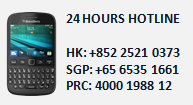USA

Impact of New US Food Safety Rules on Carriers of Food
In January 2011, the UK Club informed Members that a new food safety law called the Food Safety Modernization Act (FSMA) was passed in the US.
The law requires, in part, that the U.S. Food and Drug Administration (FDA) implement the Sanitary Food Transportation Act and promulgate regulations requiring shippers, carriers, receivers, and other persons engaged in the transportation of food to use sanitary transportation practices to ensure that food is not transported under conditions that may render food adulterated.
Now, three years later, the law is in its final stages of implementation and the FDA has imposed a deadline of May 31, 2014 for comments on the proposed rule. Once the deadline for comments is concluded, it will be too late to voice any objections or comments and the carriers will be forced to deal with the implications, costs and consequences of the rule.
In brief, the proposed sanitary transportation rule outlines broad expectations without being specific about the means of accomplishing those requirements. Although carriers are the primary target of the rule, shippers are accountable for establishing and informing the carrier of required sanitary and temperature requirements for the transport of food. Needless to say, questions and ambiguity will loom ahead as carriers explore in greater depth the potential financial and operational impacts of this rule.
As advised, there are only two months left to voice industry concerns before the fast approaching deadline. Comments can be sent to the FDA either in writing or electronically and should reference Docket ID: FDA-2013-N-0013 and/or RIN: 0910-AG98.
In summary, carriers have a golden opportunity to comment on the rule and help shape the very regulations that will govern their food transportation operations and impact their success and bottom line. For details about the proposed rule, refer to the US Federal Register / Vol. 79, No. 24 or web address: http://www.gpo.gov/fdsys/pkg/FR-2014-02-05/pdf/2014-02188.pdf
Although the implications of the proposed rule on carriers are still assessing, the initial reaction is that the impact on carriers could be significant and should be carefully scrutinized. A further article will pose questions and discuss some potential ramifications and issues for carriers to consider.
The second part of a series of Bulletins which cover new rulings by the FDA in the United States concerning changes to the transport of food.
The proposed US food safety transportation rule which is required by the FDA Food Safety Modernization Act (“FSMA”) is intended to help maintain the safety of both human and animal food during transportation by establishing criteria, such as conditions and practices, training and record keeping, for the sanitary transportation of food. The proposed rule contains many processes and requirements that are currently not being adhered by shippers, receivers, international transportation companies, truckers, railroads and logistics companies.
The proposed rule would apply to shipments of food moved under through bills of lading from overseas locations to inland points in the USA and food shipments moved by rail and truck from Mexico and Canada to the USA. The proposed rule would exempt food that is trans-shipped through the United States to another country and food that is imported for future export and is neither consumed nor distributed in the United States.
The initial assessment is that the new proposed rule will place additional costs on carriers, delay shipments and/or cause shipments to be refused entry into the US.
Based on feedback from shippers, carriers and receivers, the proposed rule, as currently written, would regulate food cargoes with no history or evidence of food safety problems and would markedly increase the cost of carrying food cargoes due in part to increased cargo claims, rendering safe food as adulterated during transportation, unnecessary pre-cooling of reefer equipment, training costs and extensive record keeping. For example, if a shipper and/or carrier fail to comply with the requirements of this proposed rule and FDA determines that food shipped to the United States by that shipper “may” as a result be adulterated, such shipments of food would be subject to refusal of admission when offered for entry into the United States.
Based on a review of the 120 page proposed rule, a partial list of proposed requirements and some corresponding comments for carriers and others to consider has been compiled.
TEMPERATURE MANAGEMENT
Proposed Rule: The carrier, upon request by the shipper and/or the receiver, must demonstrate that he had maintained temperature conditions during the transportation operation consistent with the shipper's specifications.
Comments:
Will the carrier be required to provide microprocessor downloads and event logs that are in violation of the carrier’s claims policy.
Will safe shipments of food be rendered adulterated if the recorded temperatures deviate from the optimal temperature but never come close to a temperature that would render the food as unsafe for human or animal consumption?
Will an avalanche of cargo claims be filed for failure to demonstrate that the carrier maintained optimal temperature conditions within the shipper's specifications? For the vast majority of food shipments, the shipper specified thermostat setting is for maintenance of the quality and condition of food and not for the safety and wholesomeness of the food. Upper temperature limits for the carriage of the food are generally not specified.
PRECOOLING REEFER EQUIPMENT
Proposed Rule: The rule would require the carrier to pre-cool each mechanically refrigerated freezer and cold storage compartment as specified by the shipper before offering a vehicle or transportation equipment with an auxiliary refrigeration unit.
Comment: The proposed rule requiring that all reefer equipment be pre-cooled would be in direct conflict with the equipment pre-cooling policies of some international carriers. When perishable cargo is loaded in a hot humid ambient environment, moist air can enter the interior of the pre-cooled container when the doors are opened. Moisture, in turn, can condense on the interior surfaces of the pre-cooled container and ‘rain” on the exposed cargo. In an apparent contradiction, the proposed rule also states that if the interior of reefer equipment exhibits any signs excess water under which food may become contaminated, the reefer equipment would not generally be considered to be in an appropriate sanitary condition for the transport of food.
EQUIPMENT DESIGN & CLEANING
Proposed Rule: The design of transportation equipment used in transportation and the materials used in their manufacture must be suitable and adequately cleanable for their intended use. The food contact surface coatings on vehicles or transportation equipment that are not corrosion resistant or are flaking or chipping could contaminate food due to chemical contamination or by causing the food to become unfit, and would render the vehicles or equipment as not suitable for their intended use.
Comments:
If the caustic wash solutions used in processing facilities are used to wash reefer trailers and containers, will the materials used in manufacture of the reefer equipment be suitable? In the last few years, there have been substantial food losses and claims due to the corrosion of aluminium alloys used in the manufacture of some reefer containers.
“How clean is clean” with respect to the trailer, railcar or container and the refrigeration unit? Will the equipment need to be microbiologically clean?
Will limitations be specified for the use and design of specific transport vehicles for the carriage of food?
Will limitations be specified with regard cross contamination and equipment used for previous shipments? Will backhauls be limited to specific cargoes?
RECORD KEEPING AND TRAINING
Proposed Rule: Carriers must develop and implement written procedures subject to record keeping that specify its practices for cleaning, sanitizing, and inspecting vehicles and transportation equipment and the training of carrier personnel. The records applicable to shippers and carriers engaged in transportation operation, such as any written cleaning, sanitizing and inspection procedures, for transportation equipment and training records are retained and available for a period of 12 months.
Comment: What will be the cost of training and record keeping?
If Members wish to contact the FDA and voice their concerns they should register their written comments by no later than May 31, 2014.
Source : UK P&I Club




